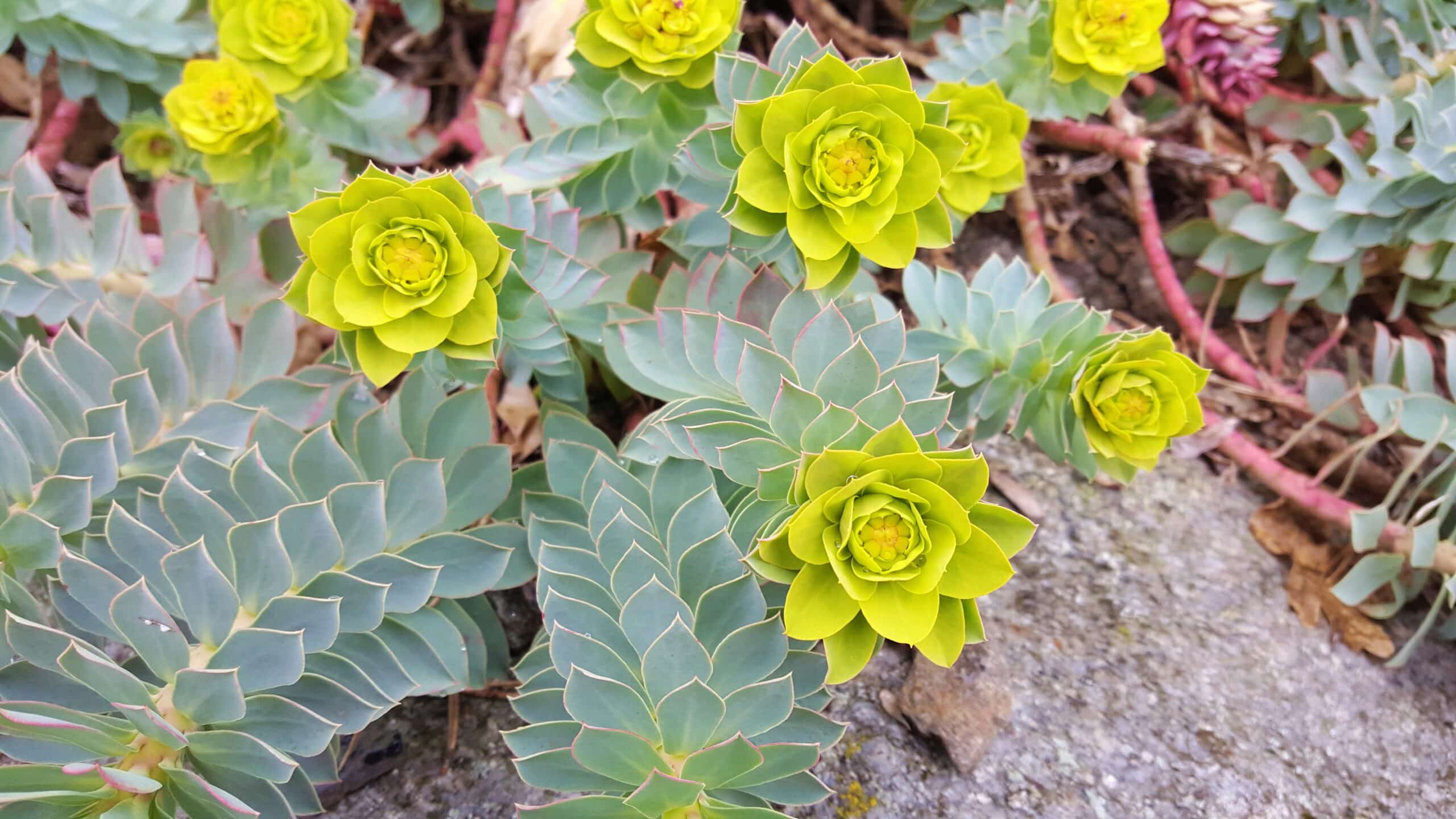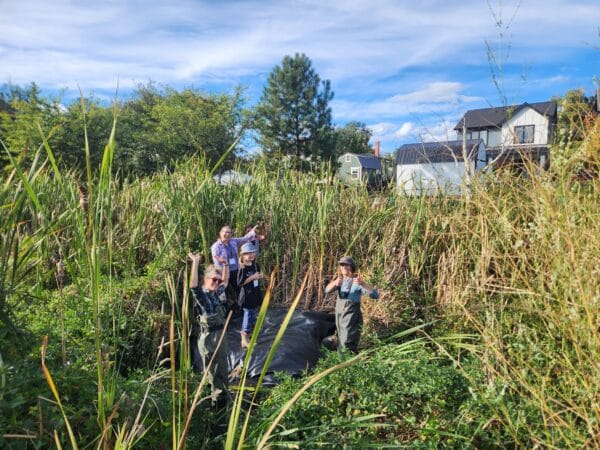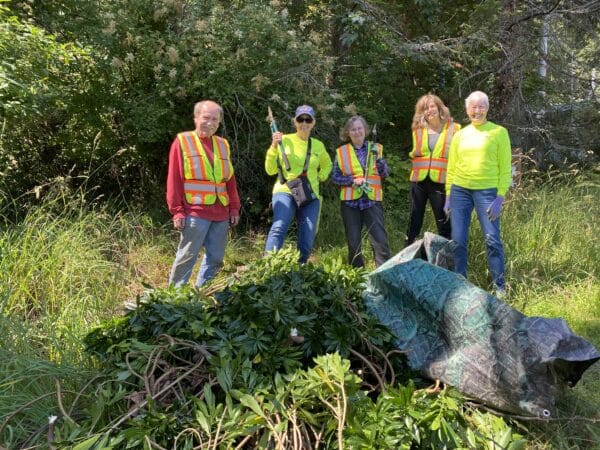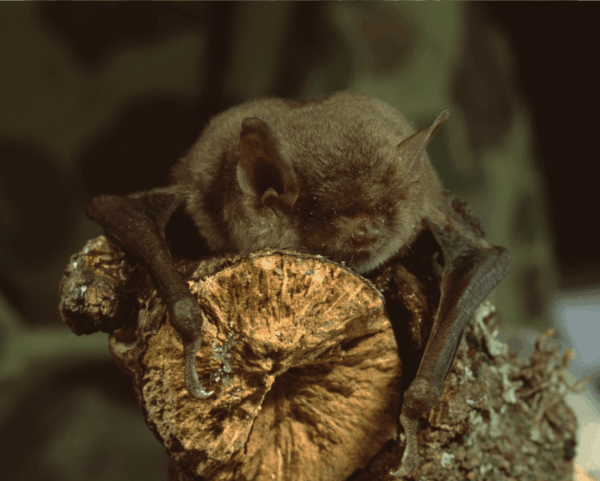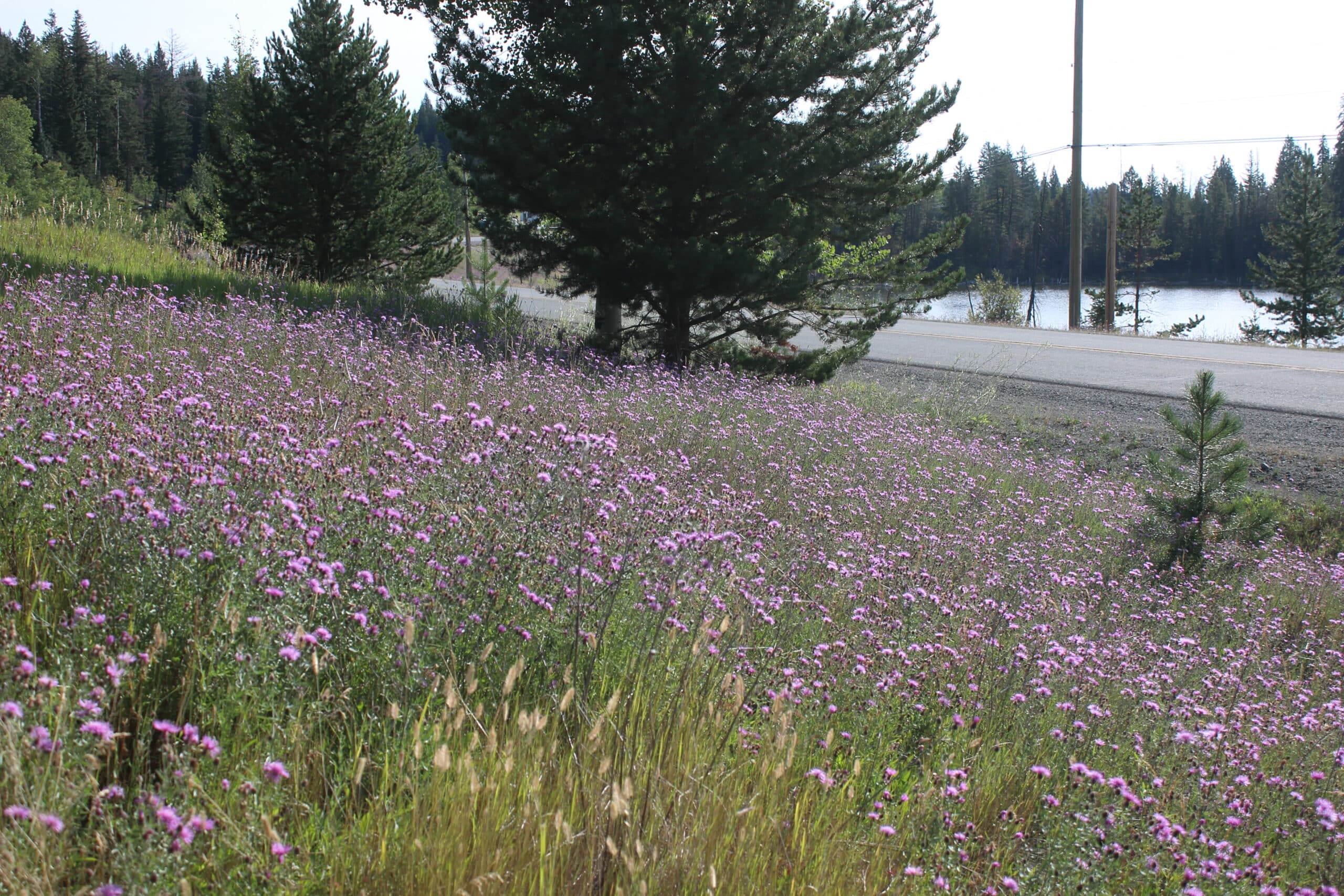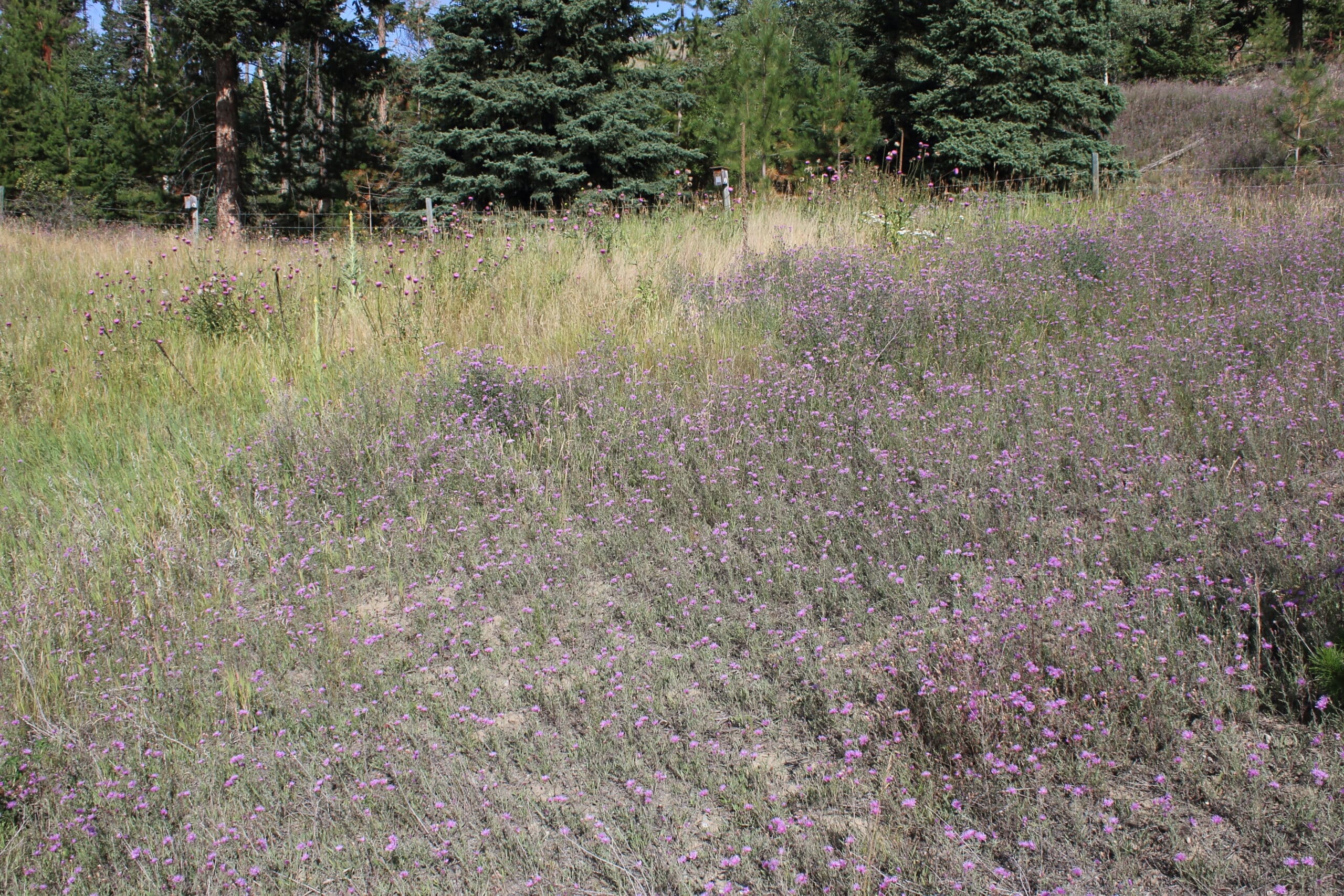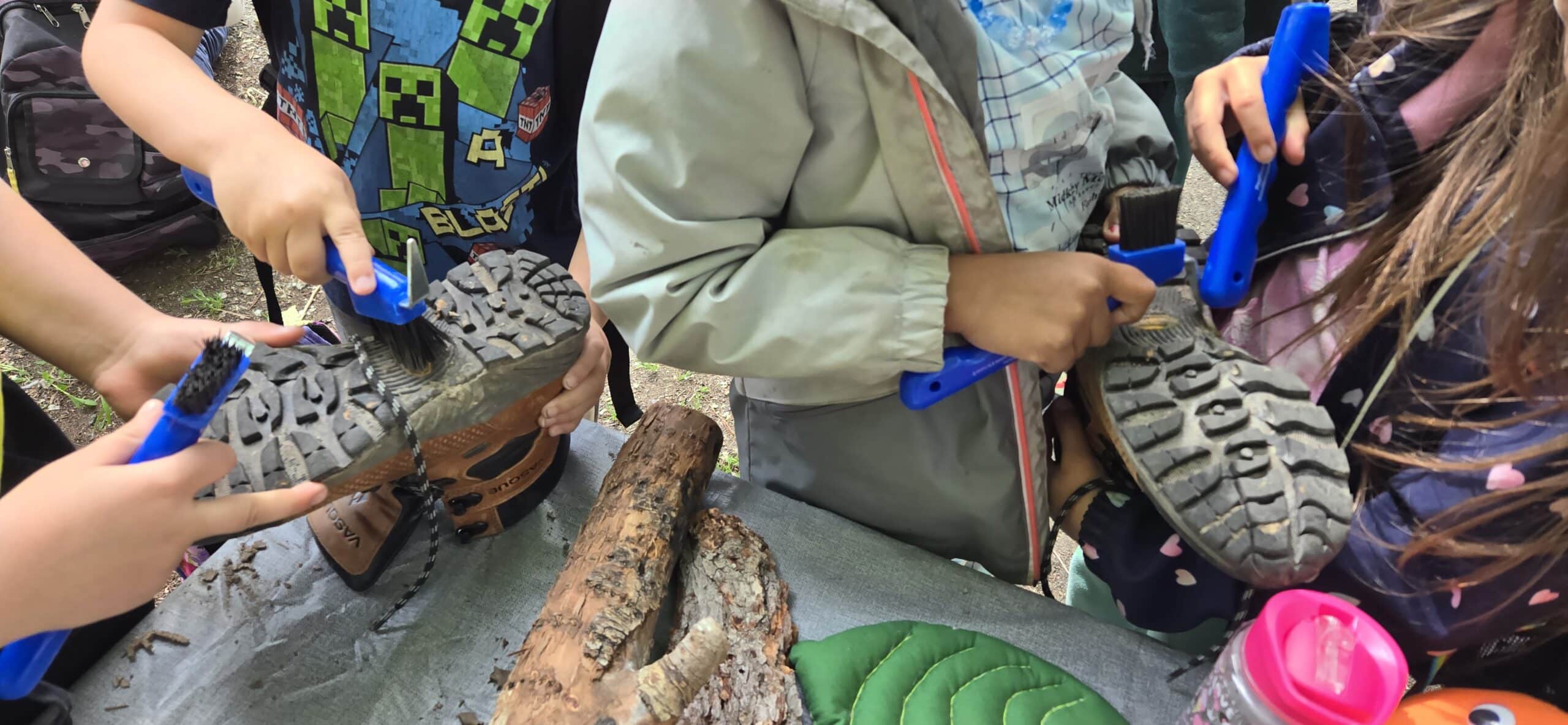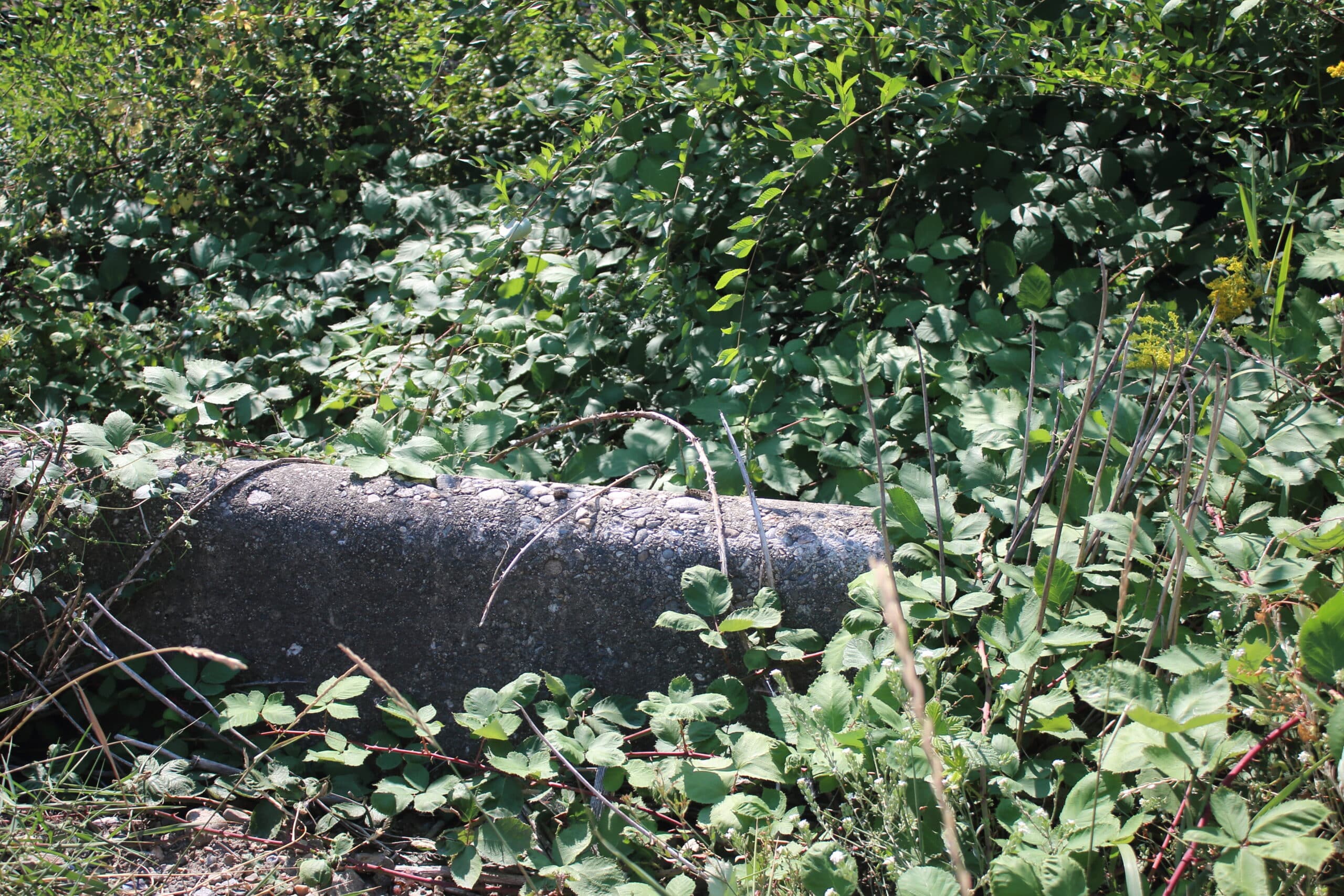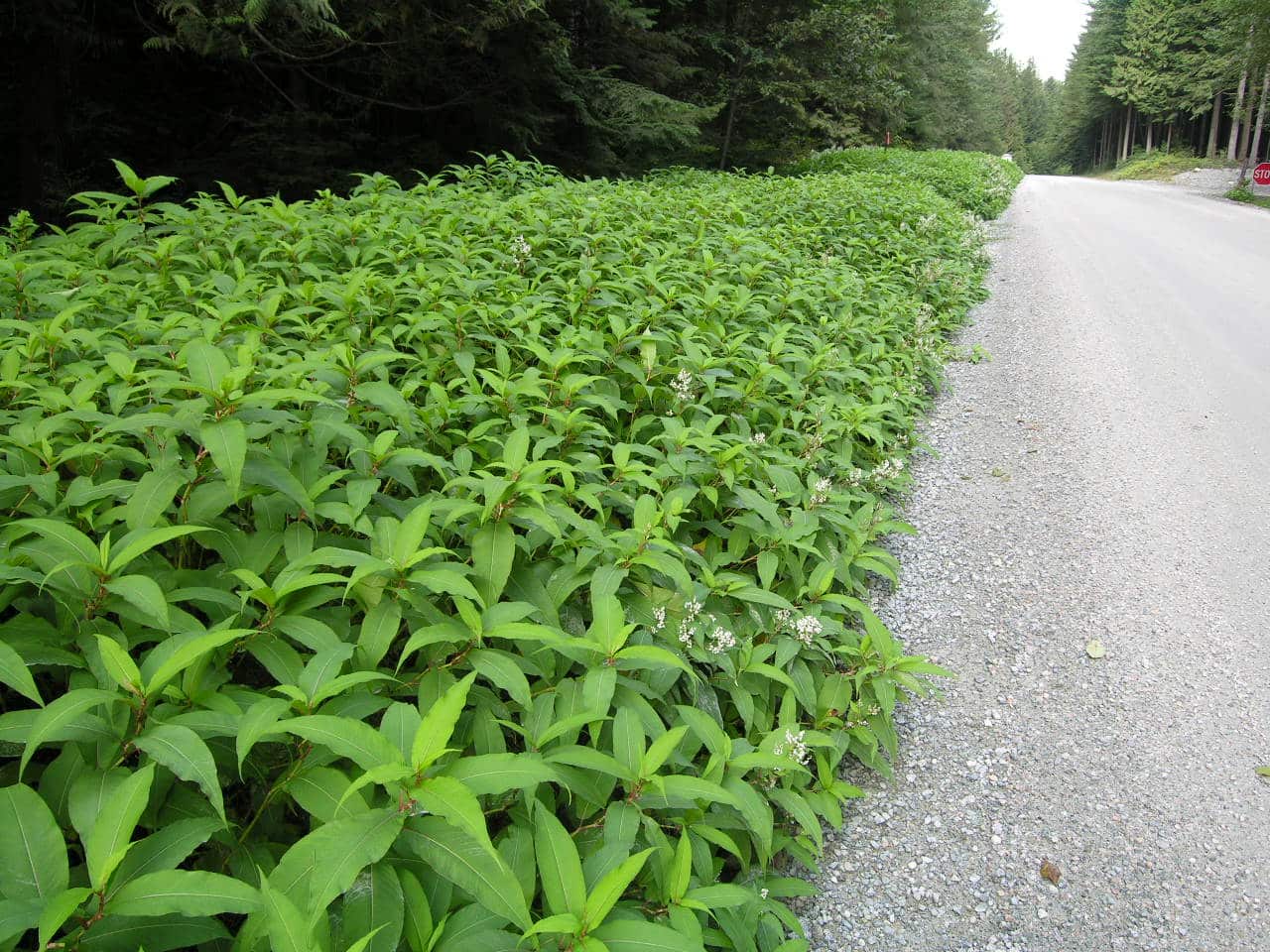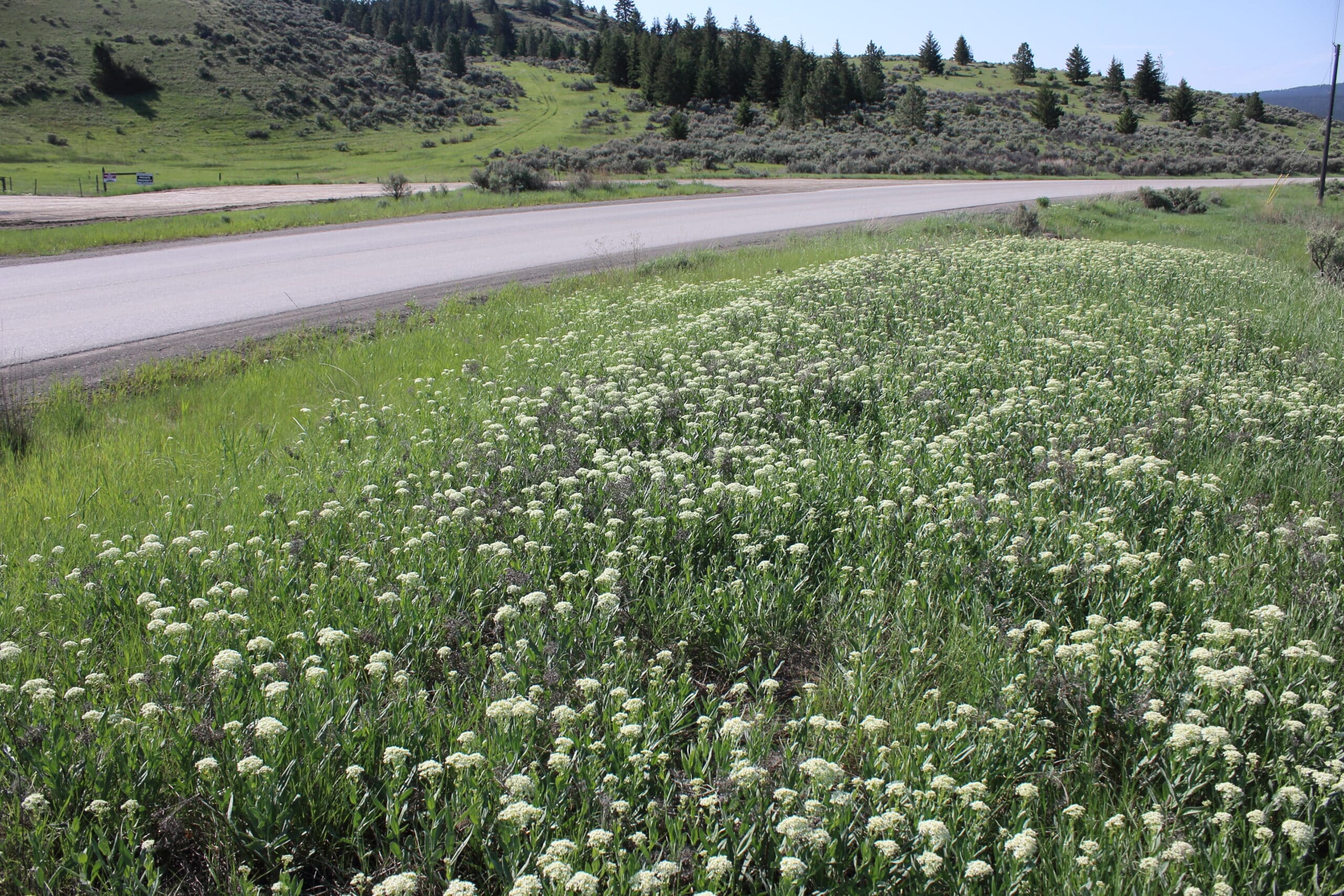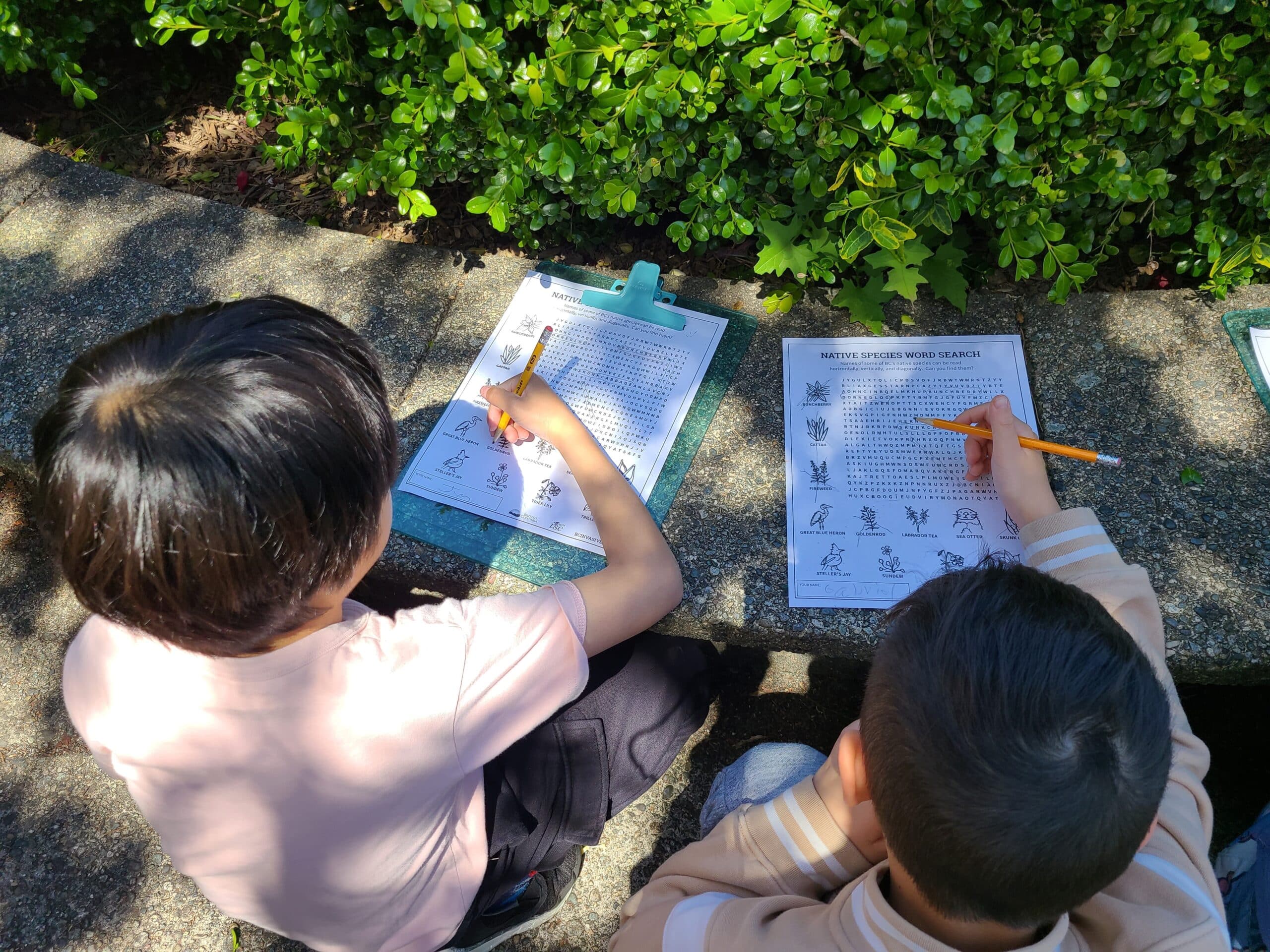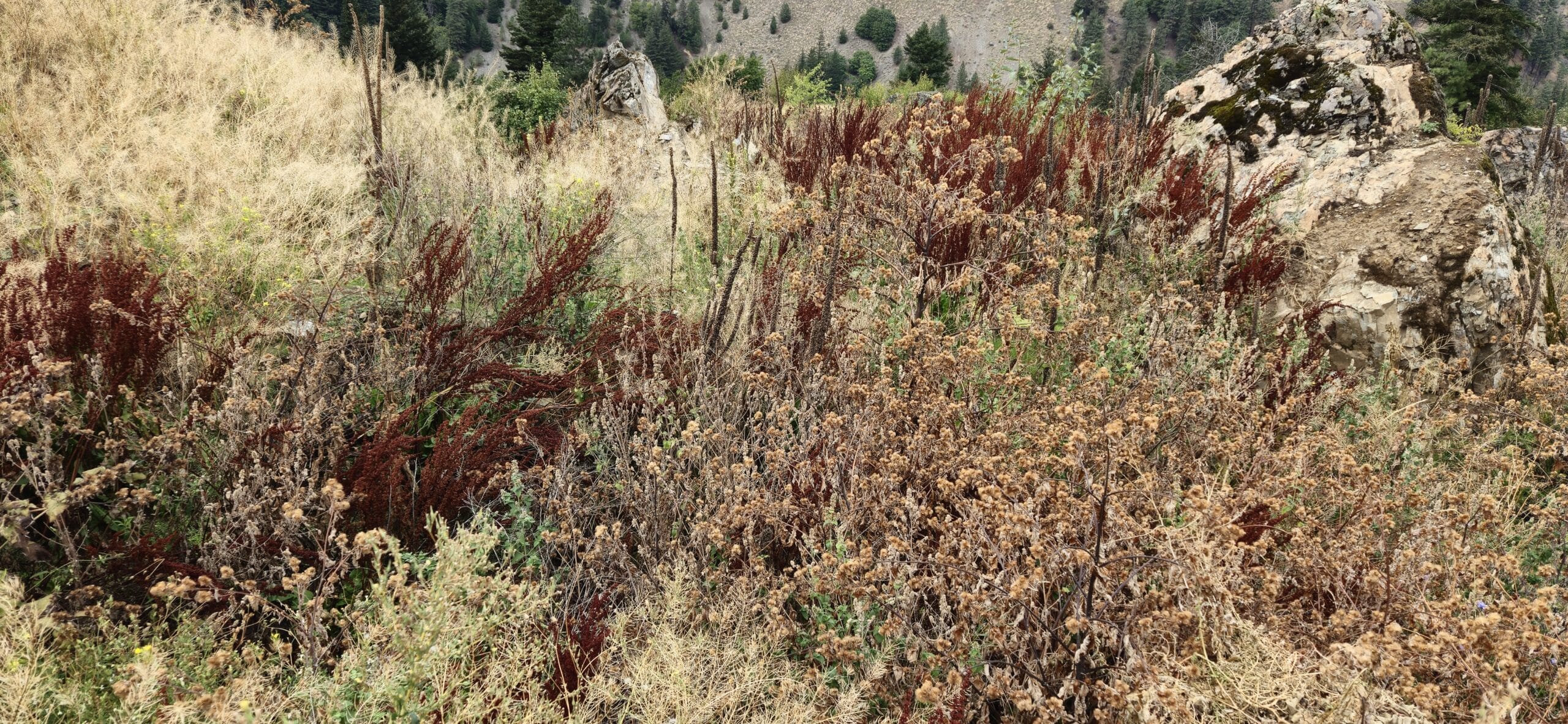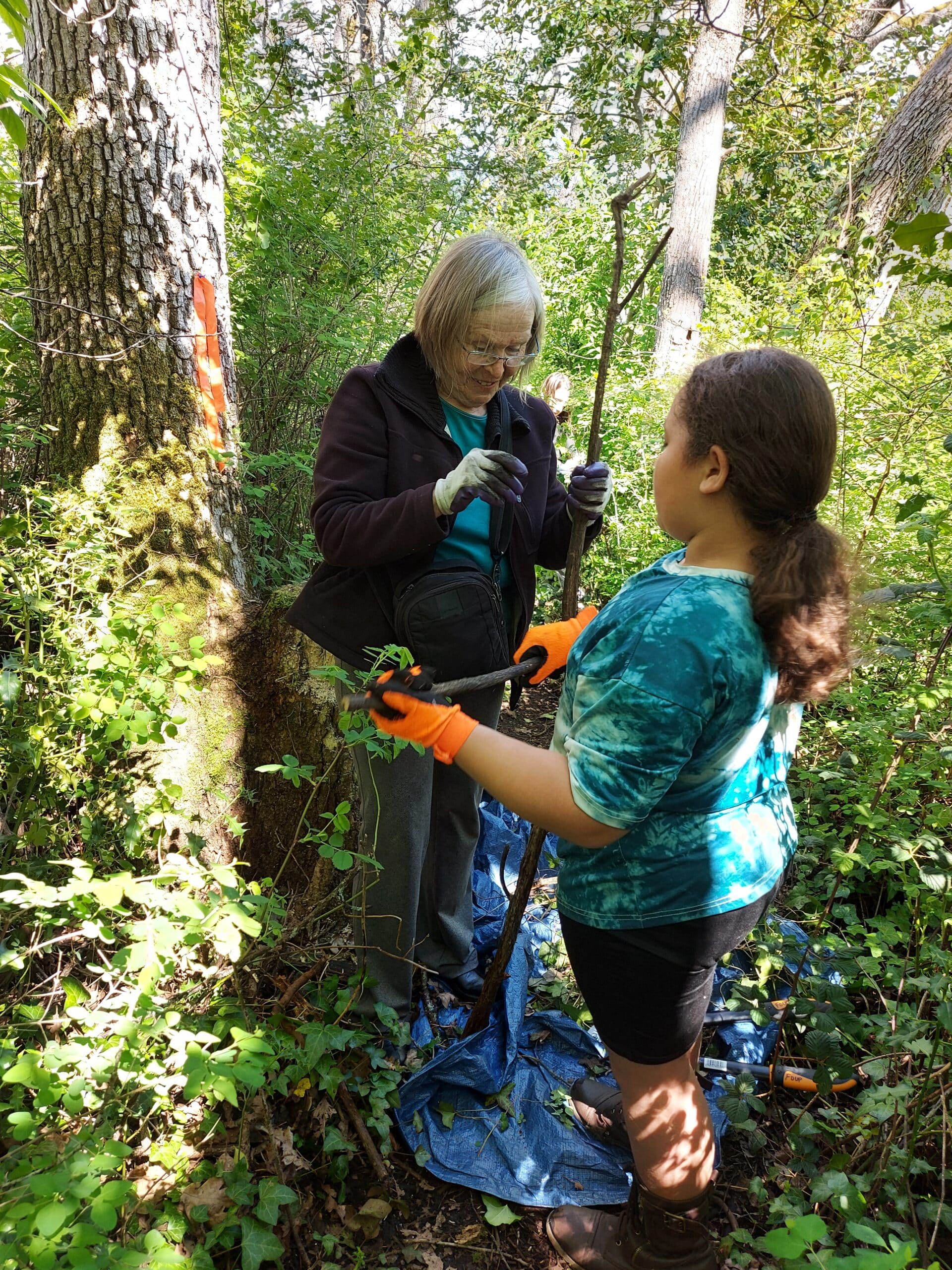By Lisa Houle | November 2, 2022
It’s hard to imagine a scenario where a plant becomes a threat to your health. Until it happens to you.
On September 27th we posted an article about a BC family’s unfortunate encounter with Myrtle spurge (Euphorbia myrsinites). After picking an array of plants from the yard to make a bouquet, two young children woke the next morning with blisters on their faces. Turns out they had picked this toxic invasive plant which oozes a white sticky sap, known to burn skin and lead to blindness if it gets in the eyes.
Since then, we’ve been contacted by numerous people – from northern BC to the mainland and Vancouver Island – through our contact forms, direct email and social media, all sharing their own experiences and photos, some seeking advice. Here’s just a glimpse of what we received:
Nina B: It’s spreading in my front garden. I first noticed it last summer and now it’s in about six different locations.
Danielle B: We planted three or so in our rock wall a few years ago, now we have them growing all over our rock path. Didn’t see that coming. I pulled them because our chihuahua roots through them to get the lizards and I didn’t want the sap to get on her.
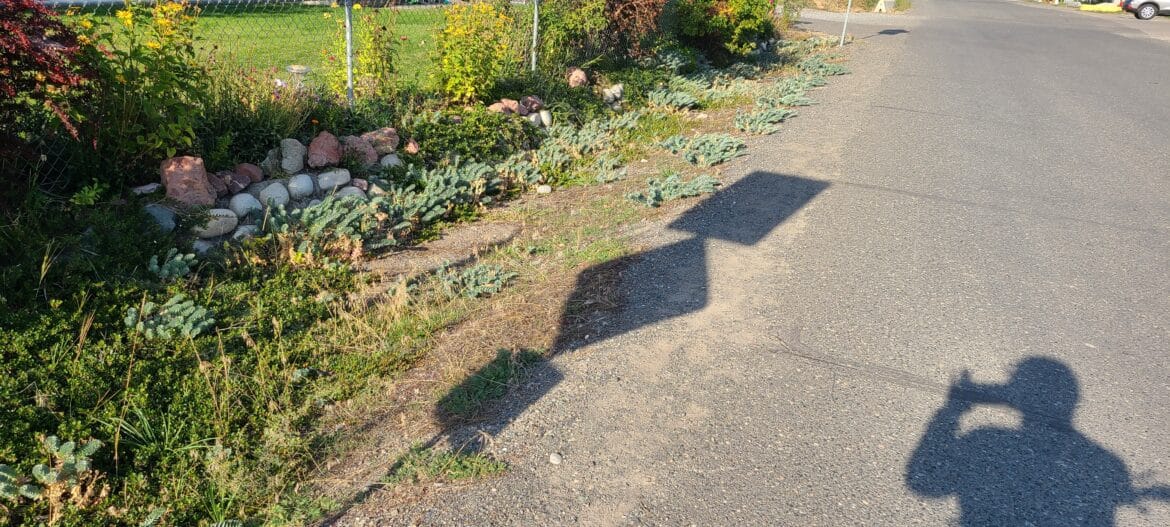
Heather G: I have tons of this in my yard. I personally have been burned/blistered when snapping off a branch and the ‘milk’ sprayed up my arm (I was wearing gloves but not a long-sleeved shirt).
Carol K: I have very sensitive skin and this is the worst experience I’ve had. I can’t tell you how terrible my rash and my reactions were to this plant!
Ida F: We had lots in our yard and decided to dig it out after learning more about this plant. It spreads fast and it was taking over the yard. I got a bit of a rash, but my husband got it in his eyes. It was very, very painful for a few days. It’s a very pretty plant but not a good one!
Some folks wrote in very worried about the plant’s potential effects and were looking for tips on how to remove it:
Lindsay S: I have a huge slope covered in this. I think the previous owners planted it. I have warned my kids and neighbors not to go near it.
Linda L: I bought this succulent years ago from the nursery I always use and have it in my garden. A friend recently mentioned it’s now considered an invasive plant. Should it be destroyed?
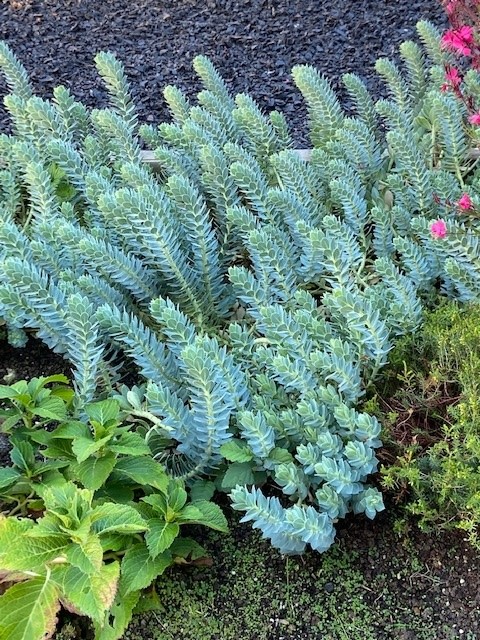
“Small infestations of Myrtle spurge can be hand-pulled. Be sure to wear long sleeves and gloves to avoid the sap touching your skin and ensure you remove as much of the root material as possible. Then, dispose of the plants in your garbage/landfill (not the green bin or home compost). Before planting anything new, make sure you know if it is appropriate for your location,” says Allison McCabe, Senior Lead, Outreach at ISCBC.
Allison recommends planting alternatives to Myrtle spurge, such as Lanceleaf Stonecrop (Sedum lanceolatum) a beautiful native succulent that thrives in hot, dry conditions or rock rose (Cistus sp.) which is drought tolerant and a good choice for rock gardens and other dry, sunny sites
“With our PlantWise program, we are working with growers, retailers, and consumers to spread the word about which invasive species shouldn’t be sold and grown in BC while providing non-invasive alternative suggestions with our free Grow Me Instead resource,” said Allison.
ISCBC’s intent with educating the public on invasive plants is not to scare anyone into avoiding nature. It’s important to drive home the message that invasive plants do not belong, and our previous article is the perfect example of why.
To learn more on how you can stop the spread of invasive plants in your community, take a 10-minute learning break with our free PlantWise course.
Have you had an interaction or a concerning encounter with an invasive species? We want to hear from you. By reporting invasive plants, we can track infestations and identify areas of priority. Get in touch by reporting directly using our online form or by emailing Lisa at lhoule@bcinvasives.ca.
Lisa is a Communications and Outreach Coordinator at ISCBC. She values a diverse environment and connecting with others about environmental protection. In her spare time Lisa enjoys spending time at the ocean and beach combing for sea glass. You can reach Lisa at lhoule@bcinvasives.ca
Share


